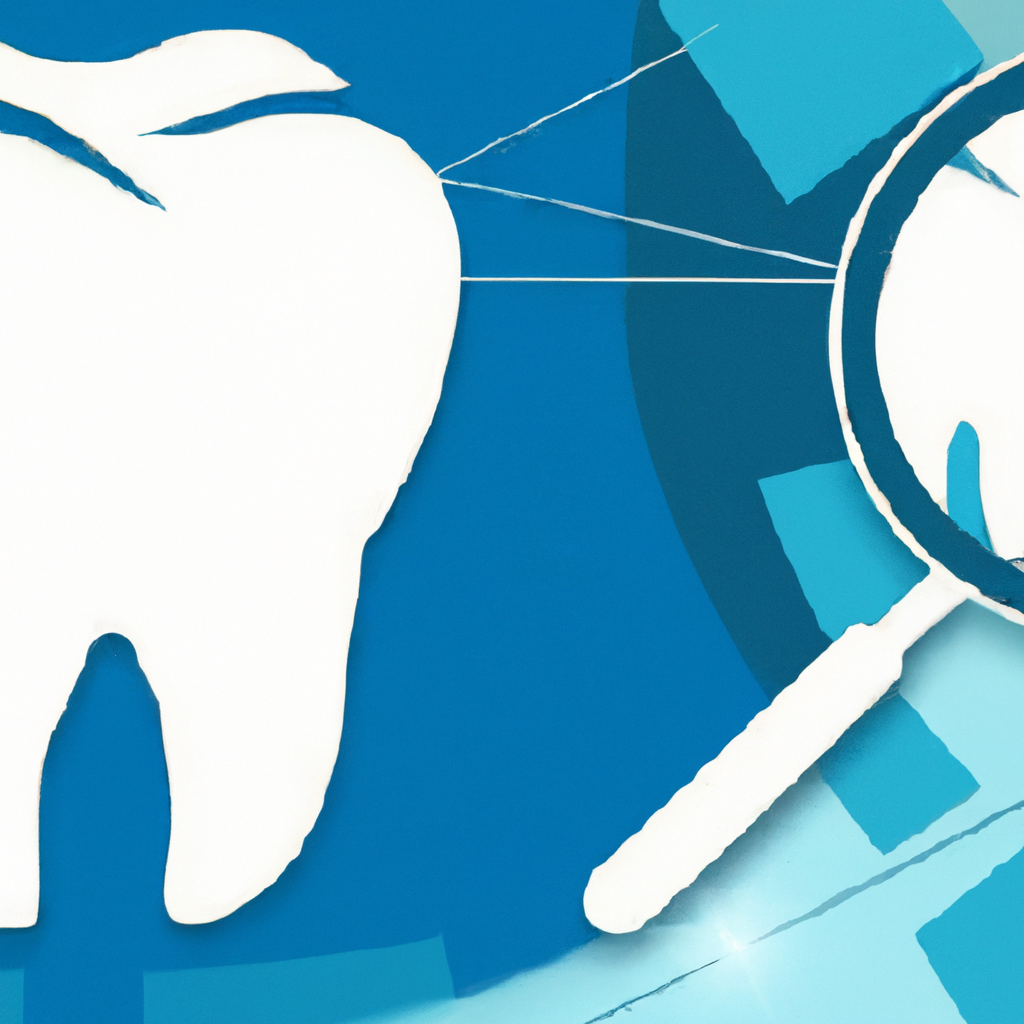Imagine if there was a way to exponentially increase the visibility of your dental practice online, attracting more local clients in need of your services. Well, with the power of Local SEO, that dream can become a reality. In this article, we will explore how Local SEO can revolutionize the way dental practices market themselves online. By strategically optimizing your website and online listings, you can ensure that your practice appears at the top of search engine results when potential patients are looking for dental services in your area. So, let’s dive into the world of Local SEO and unlock its incredible potential for your dental practice.

Understanding Local SEO
What is Local SEO?
Local SEO refers to the practice of optimizing a website and its online presence to attract more local customers in a specific geographical area. It involves implementing strategies and techniques that enhance a dental practice’s visibility in local search engine results and online directories.
Why is Local SEO important for dental practices?
Local SEO is crucial for dental practices because it allows them to reach and connect with potential patients in their local community. By optimizing their online presence for local searches, dental practices can increase their visibility, drive more organic traffic to their website, and ultimately attract more patients to their practice.
Benefits of Local SEO for dental practices
There are several benefits of implementing effective local SEO strategies for dental practices:
- Increased visibility: Local SEO helps dental practices rank higher in local search results, making them more visible to potential patients who are actively searching for dental services in their area.
- Targeted audience: By focusing on local search optimization, dental practices can specifically target potential patients in their geographical area, ensuring that their marketing efforts reach the right audience.
- Higher conversion rates: Local SEO increases the chances of attracting highly qualified leads who are actively searching for dental services, thereby increasing conversion rates and bringing in more patients.
- Competitive advantage: Implementing local SEO strategies can give dental practices an edge over their competitors who may not be actively optimizing their online presence for local searches.
- Cost-effective marketing: Local SEO is a cost-effective marketing strategy compared to traditional advertising methods. It allows dental practices to target a specific audience and generate leads without spending a fortune on advertising.
Optimizing Google My Business Listing
Claiming and verifying your Google My Business listing
To optimize your dental practice’s local SEO, it is essential to claim and verify your Google My Business (GMB) listing. This involves creating or claiming your GMB profile, providing accurate and up-to-date information about your dental practice, and verifying your ownership through a verification process.
Optimizing NAP (Name, Address, Phone Number) consistency across online directories
Consistency in the Name, Address, and Phone Number (NAP) information across various online directories is crucial. Ensure that your dental practice’s NAP details are consistent and accurate across platforms like Yelp, Yellow Pages, and other local business directories. Inconsistent information can negatively impact your local search rankings.
Choosing relevant categories and attributes
When setting up or optimizing your GMB listing, it is important to choose relevant categories and attributes that accurately describe your dental practice. This helps Google understand your business better and improves your visibility in relevant local searches.
Adding accurate business information and engaging descriptions
Make sure to provide accurate and up-to-date information about your dental practice on your GMB listing. This includes your practice name, address, phone number, website URL, and business hours. Additionally, craft engaging and informative descriptions to attract potential patients and highlight the unique aspects of your practice.
Incorporating high-quality images and videos
Include high-quality images and videos that showcase your dental practice, staff, and facilities. Visual content on your GMB listing humanizes your dental practice and makes it more appealing to potential patients. It is also an effective way to differentiate yourself from competitors.

Implementing On-Page Optimization Strategies
Conducting keyword research for dental services
Effective keyword research is essential for on-page optimization. Identify relevant keywords and search terms that potential patients may use when looking for dental services in your area. Use these keywords strategically throughout your website content to improve your rankings in local search results.
Optimizing title tags and meta descriptions
Title tags and meta descriptions play a crucial role in improving your website’s visibility in search engine results. Optimize these elements by incorporating relevant keywords and creating compelling and informative descriptions that entice potential patients to click through to your website.
Creating unique and informative content
Publishing unique and informative content is vital for on-page optimization. Develop content that educates and informs potential patients about various dental procedures, oral health tips, and other relevant topics. By providing valuable content, you establish yourself as a trusted authority and attract more organic traffic to your website.
Utilizing structured data markup and schema.org
Implement structured data markup using schema.org on your website to provide search engines with additional information about your dental practice. This can help search engines understand and display your content more accurately in search results, improving your visibility and click-through rates.
Optimizing website loading speed and mobile-friendliness
Ensure that your dental practice’s website is optimized for fast loading speeds and mobile devices. A slow-loading website or a website that is not mobile-friendly can negatively impact user experience and lead to higher bounce rates. Optimizing these aspects improves your website’s performance and user satisfaction.
Harnessing the Power of Online Reviews
Encouraging patients to leave positive reviews
Create a positive online reputation for your dental practice by encouraging satisfied patients to leave reviews on platforms like Google, Yelp, and Healthgrades. Ask for reviews after appointments, provide clear instructions on how to leave a review, and make it easy for patients to leave feedback.
Responding to reviews professionally and promptly
Engage with patients by responding to their reviews promptly and professionally. Take the time to address both positive and negative reviews, demonstrate gratitude for positive feedback, and address any concerns or issues raised in negative reviews. This shows potential patients that you value patient feedback and are committed to providing excellent service.
Monitoring and addressing negative reviews
Keep a close eye on your online reviews and promptly address any negative feedback or complaints. Responding to negative reviews shows potential patients that you care about patient satisfaction and are dedicated to resolving any issues. It also provides an opportunity to highlight your commitment to patient care.
Leveraging online reviews for local SEO
Online reviews are an essential aspect of local SEO. Positive reviews not only inspire trust and confidence in potential patients but also contribute to improving your local search rankings. Monitor and manage your online reviews, encourage patients to leave reviews, and leverage positive feedback to enhance your dental practice’s online presence.

Local Link Building Strategies
Building relationships with dental industry influencers
Develop relationships with influential individuals in the dental industry, such as dental bloggers, influencers, and renowned professionals. Collaborating with these influencers can lead to valuable backlinks and increased exposure for your dental practice, ultimately improving your local SEO.
Creating valuable, shareable content for local websites and blogs
Produce informative and shareable content specifically tailored for local websites and dental blogs. By providing valuable content, you increase the likelihood of earning backlinks from these websites, enhancing your website’s authority and visibility in search engine results.
Utilizing local directories and citation building
Submit your dental practice’s information to local directories and citation websites. These platforms display information about local businesses, including their NAP details. Consistent and accurate citations across these directories contribute to improved local search rankings.
Partnering with local businesses and organizations
Collaborate with local businesses, organizations, and charities to create mutually beneficial partnerships. This can include sponsoring local events, participating in community initiatives, or partnering for cross-promotion. These partnerships can generate local backlinks and help strengthen your dental practice’s local SEO.
Guest blogging for local publications
Write guest blog posts for local publications, such as community newspapers or online magazines. This provides an opportunity to showcase your expertise, attract local readers, and earn valuable backlinks. Guest blogging contributes to your dental practice’s local prominence and search engine visibility.
Creating Location-Specific Landing Pages
Designing landing pages optimized for local keywords
Develop dedicated landing pages that target specific local keywords and geographical areas. These landing pages should feature content tailored to the needs and interests of potential patients in those areas. Optimize the content with relevant keywords, ensuring that it is informative and engaging.
Including location-specific information and testimonials
On your location-specific landing pages, include information that is relevant to that particular area. This may include details about local events, community involvement, or specialized services offered. Additionally, incorporate testimonials from patients in that area to increase credibility and trust.
Incorporating Google Maps and driving directions
Embed Google Maps on your location-specific landing pages to provide visitors with easy access to your dental practice’s address and driving directions. This not only helps potential patients find your practice easily but also enhances the user experience and signals relevancy to search engines.
Implementing local schema markup
Include local schema markup on your location-specific landing pages to provide search engines with additional context about your dental practice’s location. This markup can improve your visibility in local search results and help potential patients find your practice when searching for nearby dental services.
Monitoring and analyzing landing page performance
Regularly monitor and analyze the performance of your location-specific landing pages. Utilize tools like Google Analytics to track metrics such as organic traffic, bounce rates, and conversion rates. Make data-driven adjustments and optimizations to improve the effectiveness of your landing pages.

Utilizing Social Media Marketing for Local SEO
Choosing the right social media platforms for dental practices
Identify the social media platforms that resonate most with your target audience and focus your efforts on those platforms. Facebook and Instagram are typically effective for dental practices, but it is essential to understand your target demographic to make informed decisions about your social media strategy.
Encouraging patient engagement and reviews on social media
Create opportunities for patient engagement on social media platforms. Encourage patients to share their experiences, ask questions, and leave reviews. Engage with patients through comments and direct messages, showing them that you value their input and are committed to their satisfaction.
Sharing relevant and informative content
Regularly share valuable and informative content related to dental health, oral hygiene tips, and updates about your dental practice. This content should be tailored to your local audience and shared on social media platforms. Providing valuable content establishes your practice as a reliable source of information and strengthens your local SEO efforts.
Utilizing local hashtags and geotags
Incorporate local hashtags and geotags into your social media posts to improve their visibility to a local audience. Use hashtags that are relevant to your location and dental services to target potential patients in your area. Geotags also help potential patients find your posts when searching for local dental practices.
Collaborating with local influencers
Consider collaborating with local influencers, such as bloggers, social media personalities, or local celebrities. Collaborating with these influencers can expand your reach, increase brand awareness, and attract a local audience. The exposure generated through collaborations with local influencers contributes to your dental practice’s local SEO.
Tracking and Analyzing Local SEO Performance
Setting up Google Analytics and Google Search Console
Set up Google Analytics and Google Search Console to monitor and track the performance of your local SEO efforts. These tools provide valuable insights into your website’s organic traffic, keyword rankings, user behavior, and conversions. Understanding this data is crucial for making informed decisions and optimizing your local SEO strategy.
Monitoring local search rankings and organic traffic
Regularly monitor your dental practice’s local search rankings and track changes over time. Use tools like Google Search Console or third-party SEO tools to assess your rankings for relevant local keywords. Additionally, track your website’s organic traffic and evaluate any fluctuations or trends.
Analyzing website user behavior and conversions
Analyze user behavior on your website to gain insights into how visitors interact with your content. Pay attention to metrics like bounce rates, time spent on page, and conversion rates. This data helps you understand user preferences and make improvements that enhance the user experience and drive conversions.
Utilizing local SEO auditing tools
Utilize local SEO auditing tools to evaluate your dental practice’s online presence, identify areas for improvement, and track progress. These tools provide comprehensive analyses of your website’s local SEO performance, including factors like local search visibility, NAP consistency, and online reputation.
Making data-driven adjustments and optimizations
Use the data and insights gathered from tracking and analysis to make informed adjustments and optimizations to your local SEO strategy. Whether it’s refining your keyword targeting, enhancing your website’s user experience, or improving your online reputation, data-driven decision-making ensures that you continuously optimize your local SEO efforts for maximum effectiveness.

Leveraging Google Local Service Ads
Understanding the benefits of Google Local Service Ads for dental practices
Google Local Service Ads (LSAs) offer an effective way for dental practices to increase visibility and generate leads. LSAs appear at the top of search engine results pages, allowing practices to stand out and attract potential patients. The prominent placement and trust indicators associated with LSAs enhance credibility and increase the likelihood of conversions.
Choosing the right services and service areas
Select the dental services and service areas that are most relevant to your practice and local target audience. Customize your LSAs to align with the services you offer and ensure they are optimized for the specific locations you serve. This helps you attract highly qualified leads and increase the chances of converting them into patients.
Meeting the eligibility requirements
Ensure that your dental practice meets Google’s eligibility requirements for Local Service Ads. This includes having the necessary licenses, insurance, and adhering to Google’s guidelines for professional practices. Meeting these requirements guarantees that your LSAs will be approved and visible to potential patients.
Optimizing your Google Local Service Ads profile
Optimize your Google Local Service Ads profile by providing detailed and accurate information about your dental practice. Include relevant details such as practice name, address, phone number, hours of operation, and service offerings. Craft engaging and compelling descriptions that highlight the unique aspects of your dental practice to attract potential patients.
Managing and responding to customer inquiries
Effectively manage and respond to customer inquiries received through your Google Local Service Ads. Promptly answer questions, address concerns, and provide helpful information to potential patients. Timely and professional communication demonstrates your commitment to patient satisfaction and can significantly impact conversion rates.
Staying Up-to-Date with Local SEO Best Practices
Following industry-leading SEO blogs and resources
Stay informed about the latest trends and best practices in local SEO by regularly following industry-leading SEO blogs and resources. Subscribe to newsletters, read blog posts, and consume educational content to keep up with the evolving landscape of local SEO.
Attending dental and marketing conferences and workshops
Attend dental and marketing conferences, workshops, or webinars to gain insights from industry experts and stay ahead of the curve. These events offer opportunities to learn about the latest local SEO strategies, network with professionals in the field, and discover innovative approaches to marketing your dental practice.
Networking with other dental professionals and SEO experts
Network with other dental professionals and SEO experts to exchange ideas, seek advice, and collaborate on local SEO initiatives. Join professional associations, participate in online forums or communities, and engage with industry influencers to expand your network and stay connected with the latest developments in local SEO.
Continuous learning and adapting to algorithm updates
Local SEO is an ever-evolving field, with search engine algorithms frequently updated. Stay responsive to algorithm changes by continuously learning and adapting your strategies. Regularly review and adjust your website’s content, keywords, and technical elements to ensure ongoing optimization and relevancy in local search results.
Hiring a reputable dental SEO agency
Consider partnering with a reputable dental SEO agency to optimize your local SEO efforts. An experienced agency can provide expertise, resources, and tools to enhance your online presence, attract more local patients, and continually improve your dental practice’s local search rankings.

